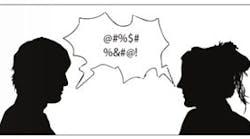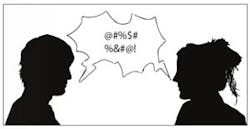In addition to being a wholesale purveyor of fresh meats, fish, fowl and agricultural products to the regional restaurants and institutional kitchens, Acme operated an on-site food manufacturing plant that produced a branded line of high-quality desserts, entrees, soups, sauces and other haute cuisine delicacies. In the name of better brand recognition, Acme opened a retail store in a separate building to sell prepackaged, fresh heat-and-eat meal kits to discerning gourmets. Some walked in, but most phoned ahead during the day to custom order any combination of items from Acme’s product line for pickup on the way home in the evening.
Everything sold in the retail outlet was prepared by a dedicated backroom crew, which included two professional chefs and a kitchen staff, all under the supervision of Dick Chenarey, Acme’s retail manager. The bill of fare in Acme’s store was equivalent to the menu found at any upscale restaurant, but at reasonable prices.
Production scheduling was the problem. It was difficult to predict what the walk-in customers would purchase. Dick expected his kitchen staff to produce and have on hand at all times a certain minimum number of each item or meal kit. Dick considered it bad form if a customer couldn’t buy what they desired or had to wait while the backroom staff scrambled to fill an order.
[pullquote]Janice LaRomana, the public face of Acme’s retail division, was the intermediary between the customers in the store’s public area and the staff in the backroom. Janice was very much attuned to Dick’s operating vision. The local economy was depressed and she believed that loyal customers continued to buy Acme’s retail products only because of the convenience and time-saving value proposition the store offered. Dick openly acknowledged that Janice was effective in customer relations. Ever polite and courteous, she bent over backward to make the experience of buying Acme products as pleasant as possible.
The backroom staff, on the other hand, routinely and freely used an abundance of profanity among themselves during the shift, not all of it in English. It was an element of the backroom kitchen culture that never harmed their effectiveness. But, paying customers never saw what went on behind that that door.
When she went to the back room to retrieve a customer’s order, she closed the door behind her. In her interactions with the backroom crew, Janice could hold her own using language that was abusive, vulgar and profane. If an order wasn’t ready on time, she might go into a screaming hyper mode.
Dick was aware that the backroom workers commonly engaged in several forms of profanity. When he thought things were getting out of hand and the profanity too outrageous, he told them to calm down and act more civilized. After a while, he realized that he had to warn Janice more than the backroom crew. In fact, he noticed that her entry through the door is what tended to trigger the backroom uproars. Soon Dick began to think that Janice had stepped over the line far too many times and he fired her for what he called egregiously offensive behavior.
Janice applied for unemployment compensation, but was denied benefits when Acme challenged her right to benefits. Acme position was that Janice was fired because she didn’t adhere to a reasonable standard of workplace behavior. Janice countered that unemployment compensation shouldn’t be denied because Acme routinely tolerated profanity among the backroom crew. Therefore, she said, the company didn’t have any standard of workplace behavior in effect.
How could this situation have been avoided? Where is the tradeoff between a worker’s bottom-line performance and social interaction among coworkers? Are there any objective criteria for denying an application for unemployment benefits? Does it make sense to fire an effective employee for using strange methods to get work completed?
An attorney says:
Janice has a good point. How could Acme have a standard of workplace behavior when it tolerated profanity among the back-room crew but not from the front of the house when dealing with the back-room crew? There’s no indication that Janice used improper language with customers. In fact, it appears that she was “ever polite and courteous” with them. Had Janice used inappropriate language with customers, Acme would have been absolutely correct in terminating her.
Employers need to be mindful of treating workers in a uniform fashion. Apart from the unemployment issue, did Acme treat Janice differently because she is female? Or perhaps differently because she was born in the United States? Janice could have a potential discrimination claim, depending on the facts.
State unemployment laws differ somewhat in defining what constitutes “misconduct connected with the work,” but a termination for this reason generally results in a worker being denied unemployment benefits. Typically, misconduct is defined as an intentional act in disregard of the employer’s best interests or in violation of a standard that an employer legitimately expects. Often this requires either that the employee has been warned about the behavior but nevertheless persists in violating the rules, or that the conduct actually caused harm to the employer. However, if Dick merely told Janice to “calm down and act more civilized,” this hardly constitutes a warning that continuing to use profanity would result in her discharge.
Had Janice used profanity in front of customers, even without being warned that the behavior was inappropriate, it would have caused actual harm to Acme and would have been sufficient to result in a discharge for misconduct connected with the work. But nothing in these facts supports misconduct as the precursor to her discharge.
It makes sense to fire an effective employee for using strange methods to get the work completed if those strange methods hamper the performance of the work or cause harm to other workers, but it doesn’t appear that anyone here was complaining about Janice’s choice of language. Understandably so, as it appears that she gave as good as she got.
Julie Badel, partner
Epstein Becker & Green, P.C.
(312) 499-1418
[email protected]
An academician says:
My first question is why is Acme in the retail business? Good strategy dictates that you stick to your core business, or, “Stick to your knitting” and continually develop your competencies there. That will deliver your profits, not some side business. Retail food service is a vastly different business than the food manufacturing business and, on top of that, it usually generates narrow margins.
Sure, some food manufacturers have retail outlets. For example, I’m not too far from a cookie manufacturer’s outlet store, where you can buy bags of broken cookies, as well as boxes of unbroken ones. But, it’s only open about four hours a day. The price is low but the selection is limited. It’s a good place to get rid of broken cookies and overproduction, but a lousy place to make any money. Acme’s plan to serve custom-ordered, fresh, heat-and-eat, upscale foods (at reasonable prices?) doesn’t make strategic sense to me. Better to stick with food manufacturing and develop that part of the business.
So much for the strategy lesson; what should we do with Janice?
Janice was in the wrong job and Dick should have spotted this quickly. She assumed the responsibility for delivering the food when the customers wanted it, and got caught between the pressure from the customers who wanted their food and the back-room people who were slow at delivering it. It wasn’t a good place for someone with a low tolerance for stress. After Dick observed her explosive behavior a couple of times, he should have known that she couldn’t handle the job and quickly reassigned her before the situation escalated to what appears to have been a full-blown war between her and the back-room group.
Screaming, shouting and foul language don’t belong in any workplace, period. I am surprised that someone hadn’t filed a “hostile work environment” suit against Acme. It was Dick’s and Acme’s responsibility to step in to stop the shouting and the foul language. It doesn’t make any difference how good or bad a worker is, or if the worker is male or female, this behavior is unacceptable. Janice might have been the greatest retail manager in the universe, but her behavior was unacceptable, and so was that of the back-room employees who also participated. And as usually happens in situations like this, the conflict escalates, and people tend to get louder and more abusive.
How does one define appropriate work behavior? Well, there’s a legal definition, which I will defer to our legal expert to explain. However, my definition is a bit broader and it has to do with whether each person in the workplace is treated with dignity and respect, which, by the way, are values that you’ll find in many company value statements. I think these are key values that should permeate the workplace, any workplace. And they’re fairly easy values to define. Just ask a group of workers what it means to be treated with dignity and respect and they’ll provide you with some nice behavioral definitions.
The unemployment benefits issue is an interesting question. Most companies would deny benefits in this case because the worker was fired for cause, and therefore is not eligible for unemployment. However, occasionally one finds a company that would argue that they put the worker in a situation that she wasn’t qualified to handle, and thus they should bear some of the blame for the poor selection/job match. These companies might give severance pay or allow unemployment claims to compensate for their “selection error.” It raises interesting questions about how much responsibility (blame?) a company should assume for an employee’s failure to perform.
Professor Homer H. Johnson, Ph.D.
Loyola University Chicago
(312) 915-6682
[email protected]
A maintenance planner says:
Maintaining high workplace behavior standards is governed by the rules of conduct the company sets forth. Employees agree to abide by these rules when they go to work each day. These standards should apply to contact with the public as well as fellow workers, and should be enforced equally from top to bottom. Dick, Janice and the Acme staff seem to be committed to doing their jobs well and maintaining the business during the economic downturn. This doesn’t, however, allow them to ignore the standards of behavior expected by the company.
Dick has an excellent vision for what’s needed to keep Acme going in the face of marketplace challenges. As retail manager, he has the responsibility to lead the employees, as well as ensure compliance with company rules. By tolerating lapses in behavior by the back-room staff and Janice, he lessened his effectiveness as a leader.
Janice is obviously an effective employee with a gift for interacting with the public. Her interaction with the back-room staff leaves a lot to be desired. As a more senior-level employee, she should hold herself to the standards the company expects and set an example for the other employees by treating them the same as she treats the public. The uproars in the back room triggered by her entrance show that their respect for her is greatly reduced and is harming the organization.
Janice’s firing was justified because of her behavior, regardless of her sex. As a management-level employee, she should have followed Acme’s rules of conduct, regardless of whether they were enforced uniformly. Acme was correct in denying her benefits. As for Dick, he has a lot of work to do in reestablishing himself as a leader and manager. Only by uniform enforcement of Acme’s rules of conduct will Dick, and Acme, be able to avoid this situation in the future.
Bryan G. Trantham, maintenance planner
Evergreen Packaging-Waynesville Facility
(828)646-2140
[email protected]
Plant Services is searching for plant professionals to join our group of experts and provide an “In the Trenches” guest response. Put your thoughts in front of your magazine-reading peers and online readers. For further information, contact Executive Editor Russ Kratowicz at [email protected] or call (630) 467-1301 x 309.

